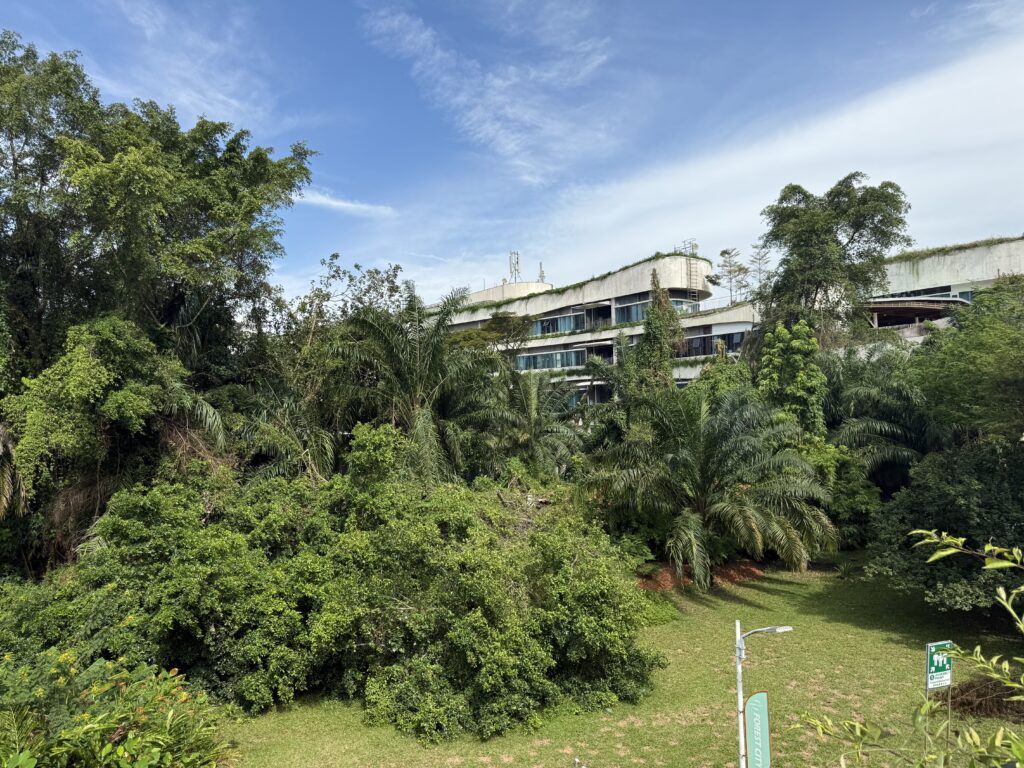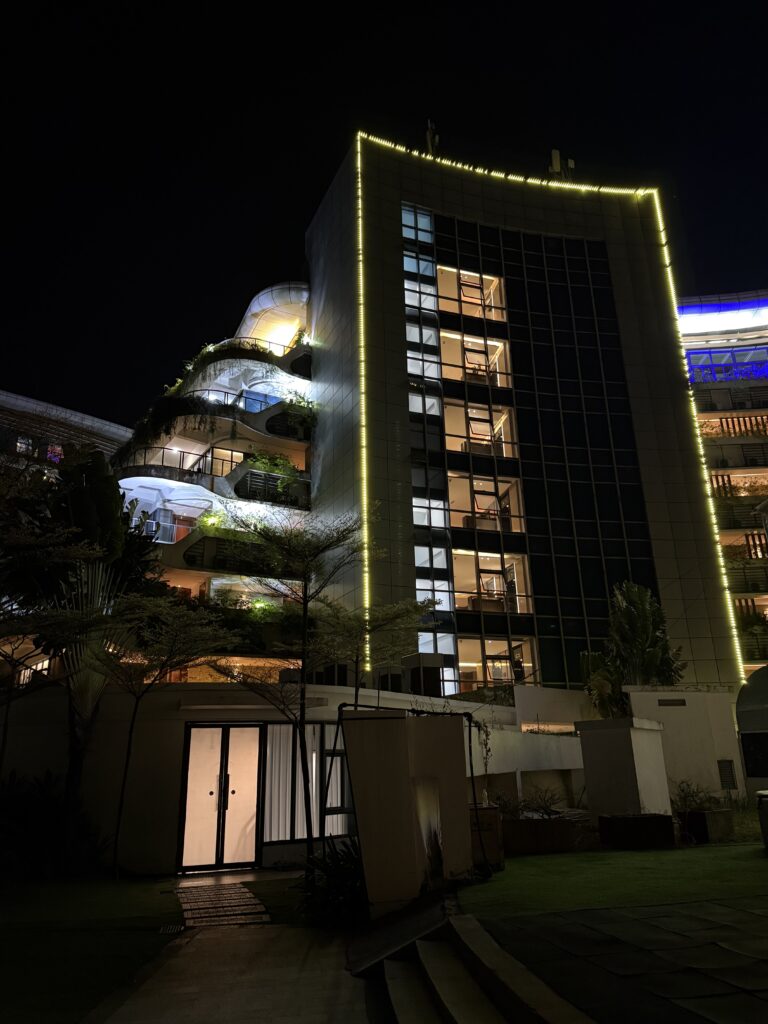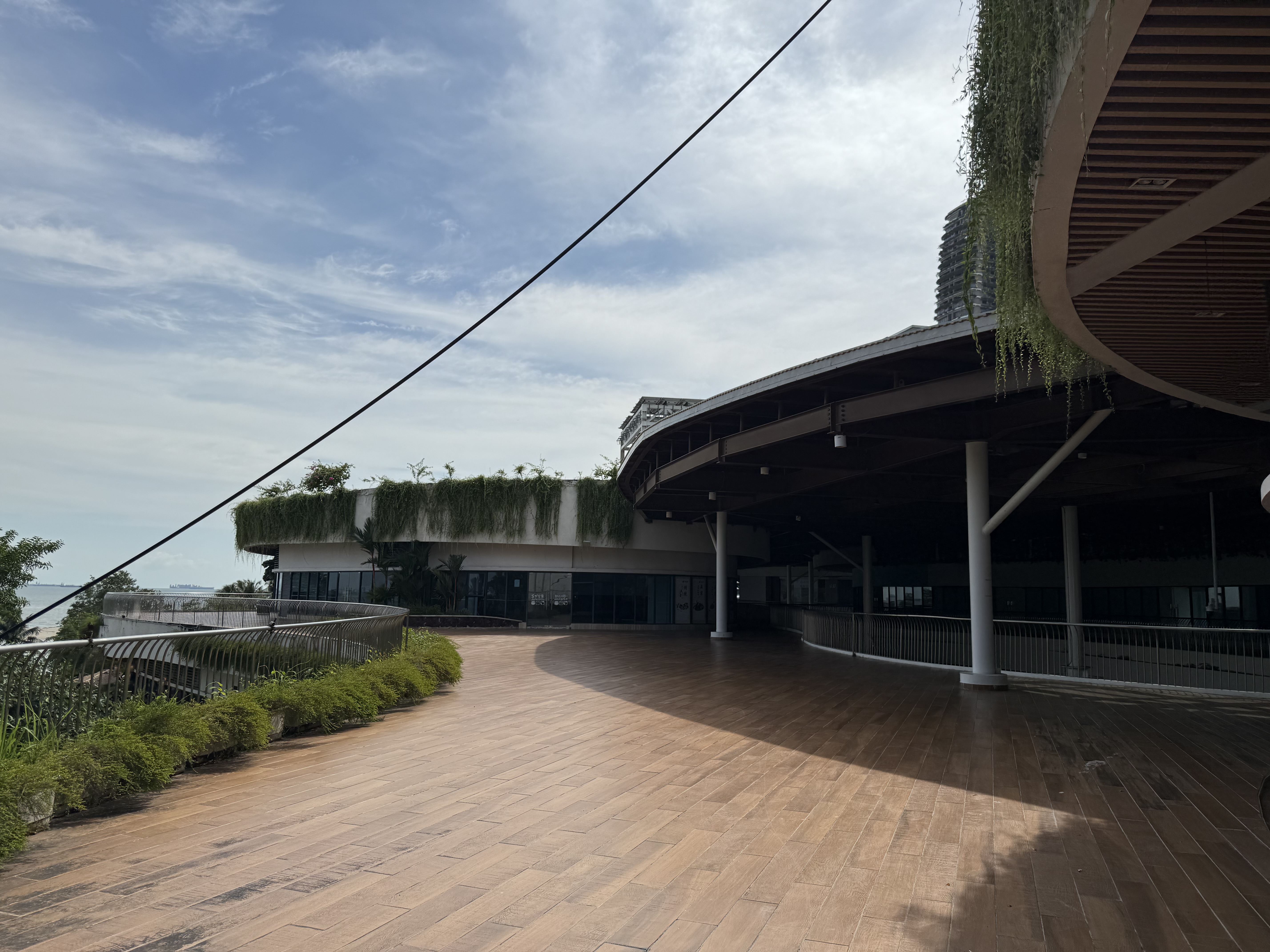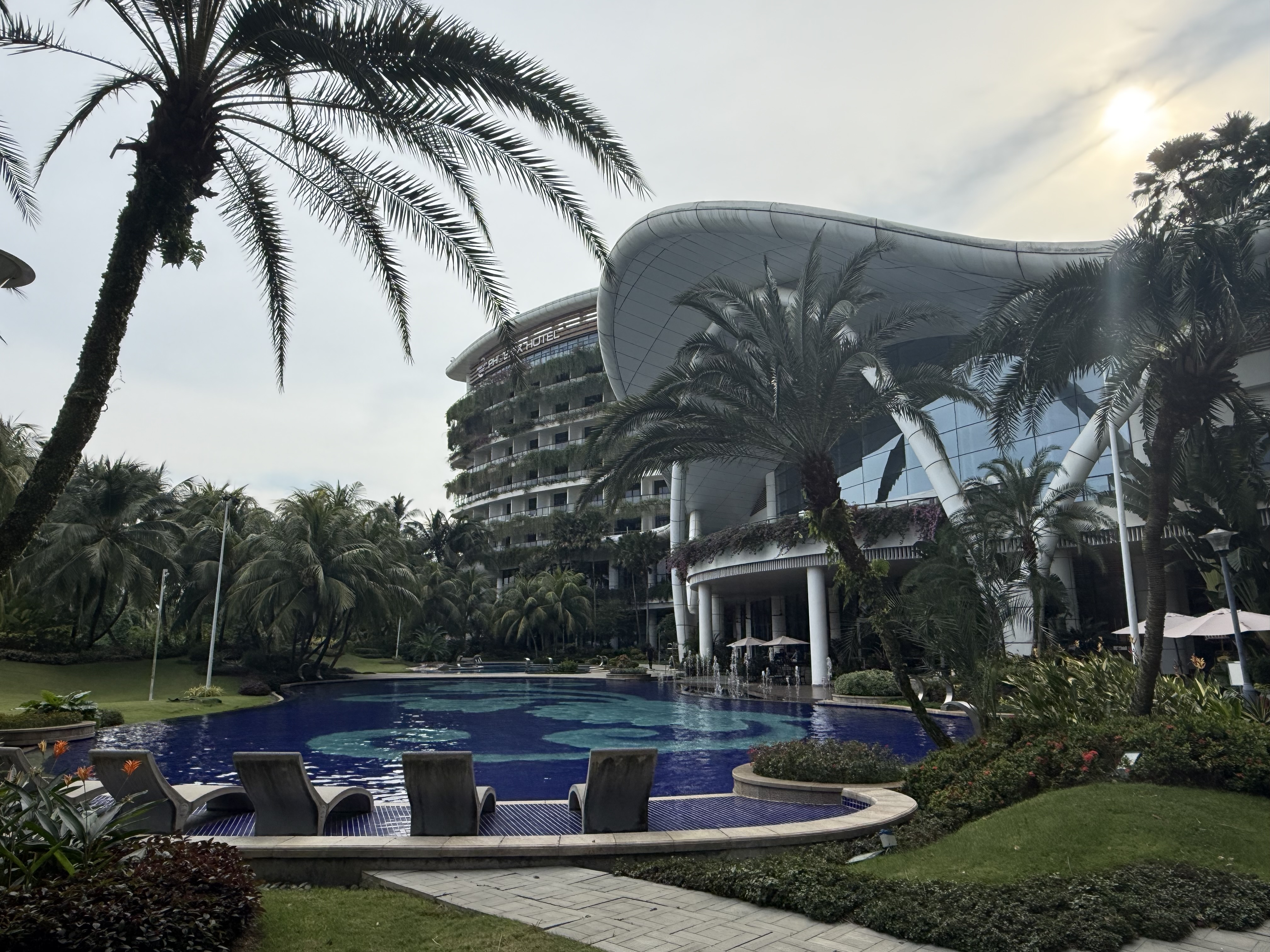I recently had the pleasure of accepting Balaji Srinivasan’s personal invitation to visit his new endeavor, Network School, for several days. Over that time, I lived in Network School’s residences, spoke with Balaji several times while getting quizzed on linear algebra, sweatily wandered around the surrounding environ, and ate five to ten mixed berry puddings per day.
Table of Contents
What is Network School?
From the official website:
The Network School is a frontier community for techno-optimists. Our members include remote workers, digital nomads, online creators, personal trainers, self-improvers, event organizers, and engineers of all stripes. […] Membership starts at $1500/month with roommates, and includes everything from meals to gym to accommodations. We think of it as society-as-a-service.
In my mind, the most accurate way to describe Network School is essentially as a college dormitory for adults, minus the coursework. Attendees live in a serviced hotel room and are treated to three meals a day and regular activities (exercise sessions, classes, etc.) for a fixed fee. As reported elsewhere, Network School is actually located in Forest City, a ghost town in Johor, Malaysia right off the Singaporean coast.

Network School takes place in a large hotel, representative of typical Chinese mass construction. Many attendees live in the hotel, and meals and activities occur within the hotel, although perhaps there are some attendees who rent apartments in other, nearby buildings. Amusingly, the hotel does draw some local residents, who I imagine must be somewhat perplexed about the presence of foreigners.
While I was there, I saw a fair number of people grouping together for various activities, although there were also many people just working alone on their laptops in the hotel lobby. There is a vague sense of shared community, and the Chinese women are especially dolled up, although not so much the men.
Great changes unseen in a century
The animating ideology of Network School is reminiscent of the Chinese phrase 百年未有之大变局, now adopted as a core component of CCP rhetoric and taken to refer to the natural emergence of key opportunities as the world shifts. From Xi Jinping Thought on Diplomacy:
China now finds itself in the best period for development it has seen since the advent of the modern era; [simultaneously], the world faces great changes unseen in a century. These two [trends] are interwoven, advancing in lockstep; each stimulates the other. Now, and in the years to come, many advantageous international conditions exist for success in foreign affairs.
I’m practically seeing double:
Ideologically, the Network School is for people who admire Western values, but who also recognize that Asia is in ascendance, and that the next world order is more properly centered around the Internet — around neutral code — than around either declining Western institutions or a rising Chinese state.
Of course, the CCP is more concerned with the rise of China, whereas Balaji is more attentive to the development of little geological cracks forming as the great powers shift to and fro; however, thematically, the underlying philosophy is quite similar. In particular, they are both premised on the gradual inevitability of Western decline, and that the weakening of the Western geopolitical order induces “advantageous international conditions” for success.
China, already being a state, aspires to advance its standing and uplift its people. Balaji, not having a state, perhaps has even grander aspirations:
The riposte to that riposte is to note that Christianity also isn’t a place, yet there are Christian5 places…because there are churches, cathedrals, and entire countries with the cross on the flag. Similarly, yes, the Internet itself is not a place, but there areInternet places…like startup offices, tech conferences, datacenters, and entire countries with Bitcoin as the national currency.
The riposte to that, of course, is that wherever Christians are in the world, they are still subject to the local laws. Today, the power of the state has never been so strong, but even two thousand years ago, Christians were instructed to render undo Caesar the things that are Caesar’s.
Here we catch a glimpse of Balaji’s core ambition: sidestepping the decline of the West, while remaining independent from the great Asian tigers; dangling the allure of human capital, business formation, and tax revenue to lure in lesser powers; eventually, perhaps, forming a network so strong that in aggregate it wields power comparable to that of a nation-state.
The old order is sustained by the ability of a state to project force within its borders. The new order envisioned by Balaji is one where the compulsion of capitalist commerce, now freed from its geographic constraints, becomes the primary determinant of strength, in time supplanting the world of nation-states much in the same way that capitalist economies inevitably toppled the old system of mercantilist trade.
A grand vision if I ever saw one! It is difficult to not admire the sheer scale and boldness of his dream.
Headwinds
It’s easy to imagine reasons why this grand vision may or may not come to fruition, and I don’t really want to waste even more ink on interminable debates about the future of geopolitics. Or do we really think that it’s useful for yet another blogger to opine on the affairs of the great powers?
In practice, the difficulty in getting Network School up-and-running is simply the Cold Start Problem: how exactly do you attract people to live in a half-forgotten corner of Johor? One way is through Balaji’s personal reputation. Another way is by marketing to particular groups of people who don’t fit well into the current system, or what Balaji calls “dark talent” — people who are gifted yet overlooked.
As a matter of principle, dark talent certainly does exist; the operative question is just to what extent that’s true. We all love the story of June Huh, high school dropout turned Fields Medalist, but how many of us read the Quanta article carefully enough to notice that he was admitted into Seoul National University for undergraduate studies nevertheless?

Yet don’t let me pour water over the flames of ambition — at the most basic level, there’s no reason why someone single, unattached, and itching for a month of (mild) adventure shouldn’t head over to Network School. At the very least, it’s a good excuse to check out an unquestionably fascinating niche of the world. And who can really complain about being fed berry puddings all day long while typing away at your computer?

A thornier problem is the issue of adverse selection. Harvard does not have to ask why someone is applying to Harvard. Network School does not have that luxury. Perhaps they are ideologues or outcasts of the system; perhaps they simply had no better options. But I imagine that in the 17th century, there must have been some British lord somewhere writing about the adverse selection of the American colonists… and look where we are today!
Flippant comparisons aside, it’s not easy to summon a new community out of the luminiferous ether, least of all when the ties are originally digital in nature. Twitter user @josiah_lee pointed out that the Internet itself has physical dependencies:

But to me, the greatest challenge is that building a real community — with a sense of shared identity and purpose — is just fundamentally hard. It’s extremely difficult to transition people from members of a Special Economic Zone, to so speak, into genuinely invested community members.
Consider the case of a normal corporation. Employees at Google are highly selected, generally share similar interests, originate from similar geographic zones, physically work in the same offices, coordinate on projects together, and are even financially aligned through company equity. To be sure, Google is an immensely powerful company, and some Googlers do likely believe in a certain sense of Google-ness or in the “Googler community.” Yet one cannot help feeling that it falls short of a real society, and that most people stay at Google for what ultimately boil down to mercenary reasons.
Perhaps, you say, Google would be a wonderful outcome for Network School — it’s not like these are insurmountable gaps. One could imagine, for example, shared financial alignment in the growth of Network School itself. However, if the overriding drive is to grow Network School around the world, will they be able to preserve a coherent sense of ideological drive, or will lesser theoretical concerns be subordinated to the exigences of recruitment and by the powers of local governments?
It will be fascinating to see how Network School navigates these ambiguities!
Forest City is beautiful yet desolate
What made the greatest impression upon me was simply the surreal beauty of the surroundings, owing to Forest City’s unusual history:
Forest City is an integrated property development and special financial zone (SFZ) in Iskandar Puteri, Johor, Malaysia.[2] It is located on reclaimed land in the southwestern part of Johor Bahru District, the second largest district in Malaysia by population. It was first announced in 2006 as a twenty-year investment project mostly financed by Chinese developer Country Garden, pitched under the Belt and Road Initiative.[3] […] The development of Forest City is contentious. The project was not targeted at local Malaysians but rather at upper-middle-class citizens from China who wanted to park their wealth abroad, by offering relatively affordable seafront properties compared to expensive coastal cities within their country such as Shanghai.[8][9]However, initial strong sales from China collapsed after CCP general secretary Xi Jinping implemented currency controls.
As of 2023, the occupancy rate of Forest City was barely breaking 1%. Despite this, though, the developer is still putting in the effort to keep public spaces well-maintained, and the local hotels somehow employ enough staff to prepare an entire breakfast spread of three different cuisines each morning (though I dare not ask how many times the croissants have been reheated).

One observation I had never consciously made before is that if you want to maintain a solarpunk aesthetic without enormous additional water consumption, you can simply situate your city in a tropical environment. I recall regularly venturing out for a nighttime walk, well after sunset, and returning to my hotel room drenched in sweat and ready for my sixth shower of the day.

I was a little surprised that I didn’t encounter any other people exploring the little nooks and crannies of Forest City. The Network School hotel is essentially situated at the end of a large, multi-level shopping mall. It’s a little difficult to describe, but you can just walk up and down random flights of stairs to arrive at totally isolated areas with a wonderful view of the ocean.

There are two areas of Forest City within walking distance that could be charitably considered “downtown.” One of them is a circular boulevard of restaurants, and the other is a bizarre linear array of identical, slightly foul-smelling general stores. It is not clear to me what combination of tax evasion and government support keeps these institutions alive.
I chose a promising-seeming restaurant, walked in, and ordered a bowl of their signature noodles in Mandarin for $2.84 USD. They were essentially flavorless, but I tried my best to finish them out of politeness.

I guess a population of under 10,000 doesn’t exactly result in intense levels of free-market competition for restaurant quality, but I was still expecting the Asian baseline to be a little better than that.

Anyway — if you’ve got nothing stopping you, then maybe stop by Network School for a month! In the worst case, you’ve still made it to Asia, and nobody can really complain about that.
Leave a Reply